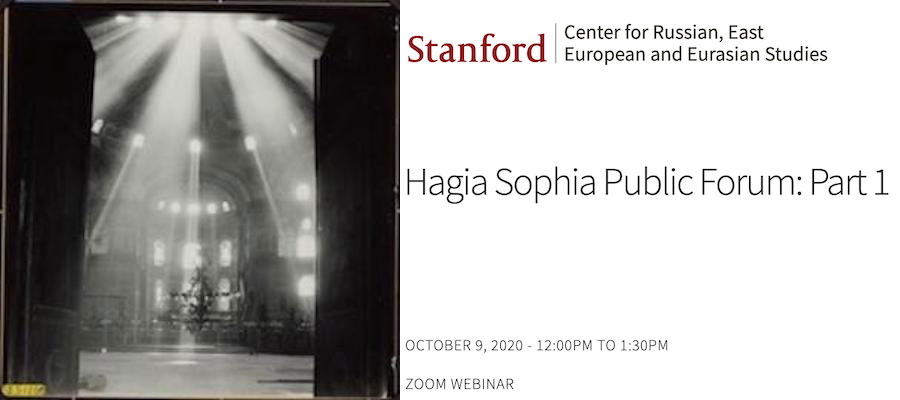Hagia Sophia Public Forum: Part 1, Stanford University via Zoom, October 9, 2020, 12:00–1:30 pm
Hagia Sophia is a masterpiece of world architecture, having served many different functions throughout its 1500 years of history: built as the cathedral of Constantinople in 532-537, then converted into a mosque 1453 when the city fell to the Ottoman Turks, and then transformed into a museum in 1934 by the founder of the Turkish Republic, Mustafa Kemal Atatürk. The secularization emphasized the universal, historical value of the monument over the more divisive memory of the Byzantine empire and its Ottoman conquest. All this abruptly changed when on July 10, 2020 Turkey’s highest administrative court revoked the 1934 decree, leading to the reconversion of Hagia Sophia from a museum back to a mosque and mandated a switch of its jurisdiction from the Ministry of Culture and Tourism to the Directorate of Religious Foundations. Why this reversal, why a mosque, why now, for whom is this gesture intended? How does this action reshape the stewardship of the monument and Turkey's image?
The Hagia Sophia Public Forum at the Cantor Arts Center at Stanford has invited a core group of scholars and a political commentator and journalist to address these questions and lead the discussion about the future of this great monument. Two consecutive sessions will address the implications of the reconversion on the survival of a multi-faith Turkey. The first session will present the Byzantine history of the building, the process of its museumification underwritten by significant American private donations, and the current conservation projects. The second will focus on the Ottoman significance, its role in the formation of the modern Turkish Republic, and the contemporary divisive politics. Each speaker will give 12-min presentations, followed by discussion among the panelists and a public Q&A session.
Advance registration required.
